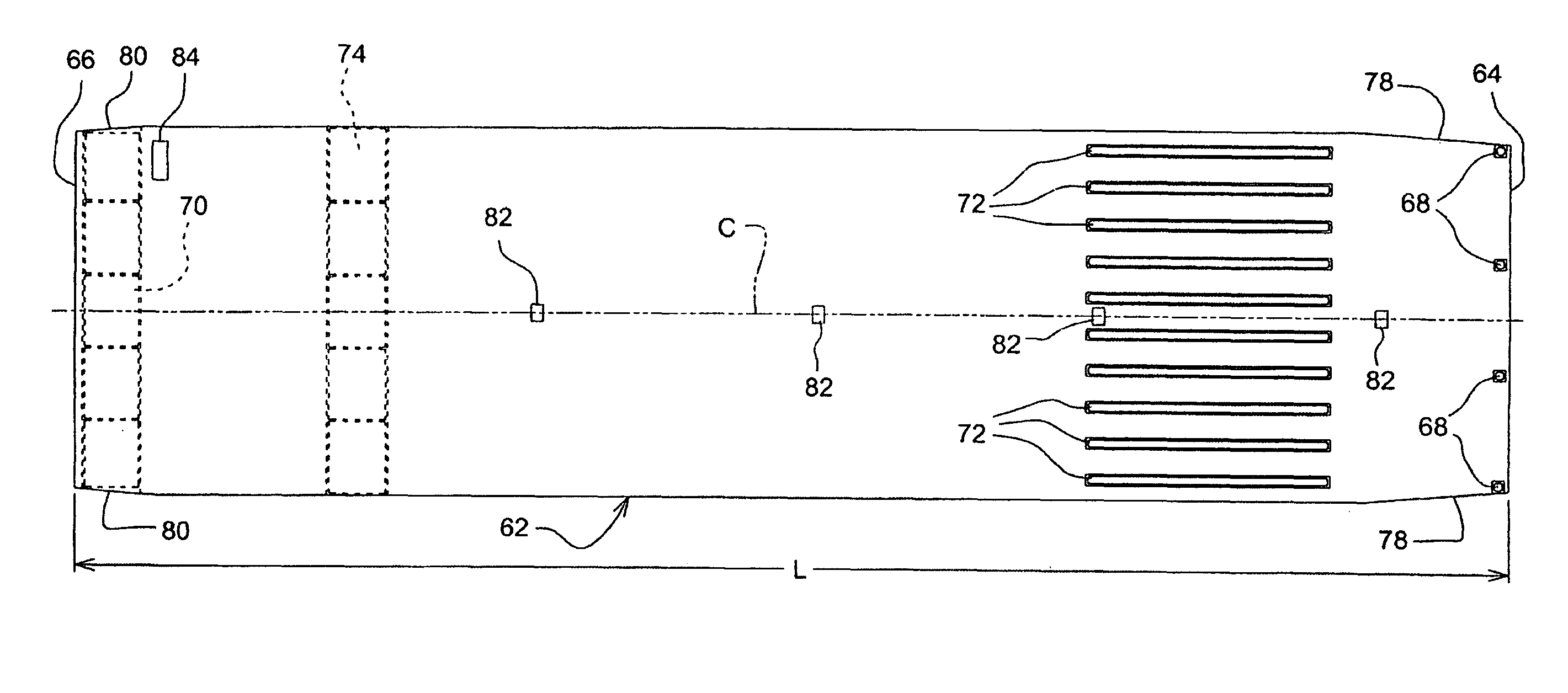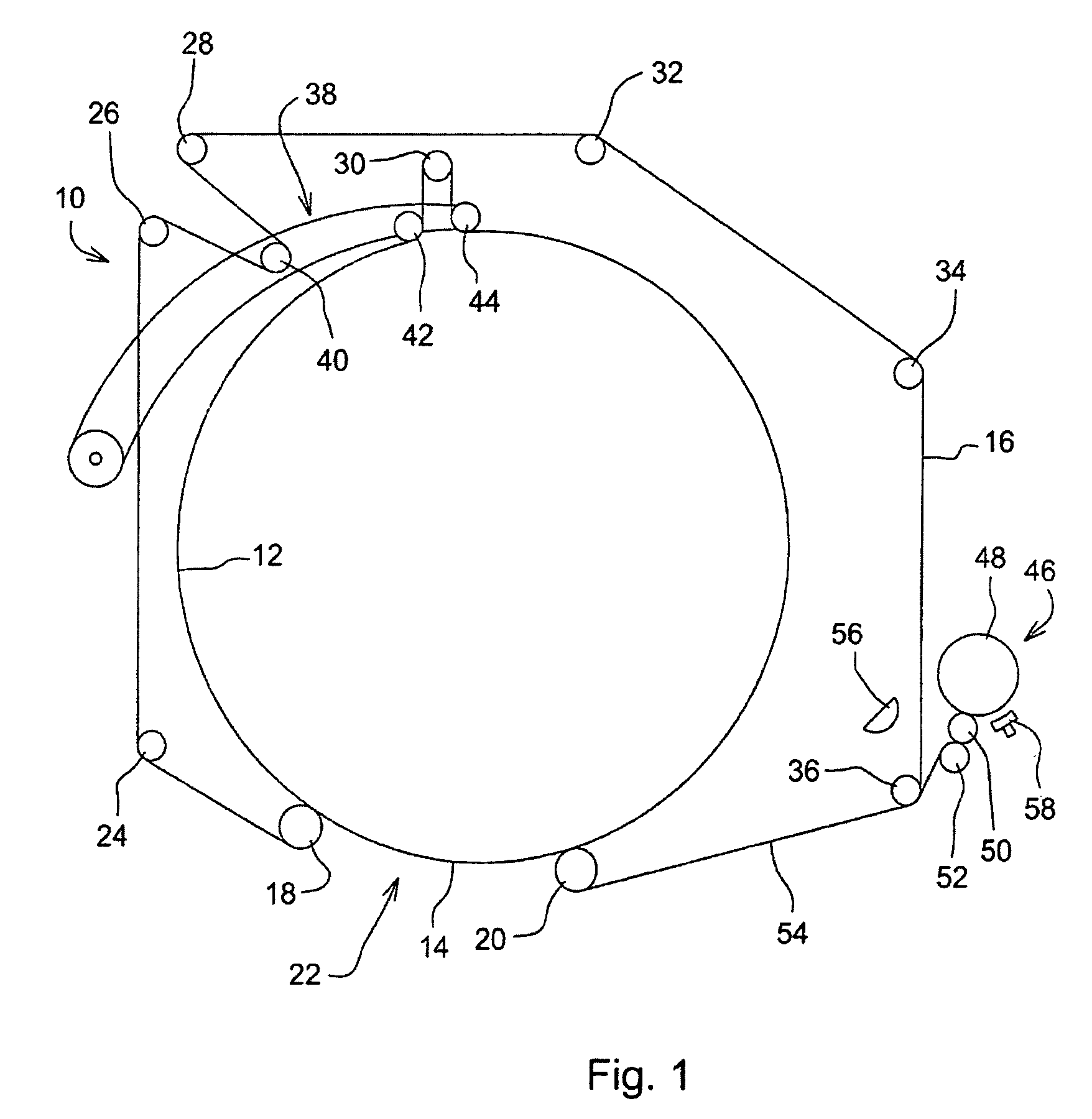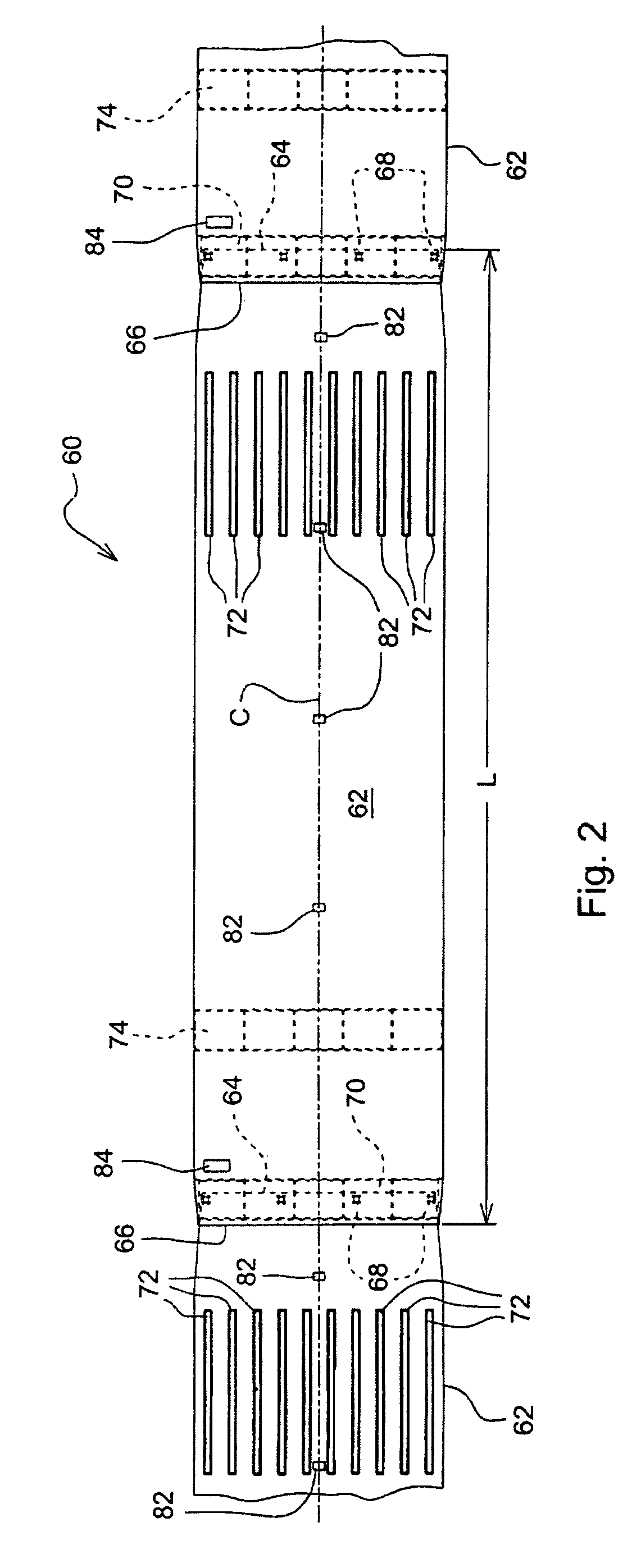Reusable wrapping material for a cylindrical cotton module
a technology of protective wrapping and cylindrical cotton, which is applied in the direction of hose connections, snap fasteners, buckles, etc., can solve the problems of insufficient strength of wrapping materials and large amount of wrapping materials, and achieve the effect of convenient cleaning and convenient cleaning
- Summary
- Abstract
- Description
- Claims
- Application Information
AI Technical Summary
Benefits of technology
Problems solved by technology
Method used
Image
Examples
Embodiment Construction
[0015]Referring now to FIG. 1 there is shown a module-forming chamber arrangement 10 including a chamber 12 containing a completed cylindrical module 14. The module-forming chamber includes a plurality of flexible belts 16 supported in side-by-side relationship to each other across a plurality of fixed rolls including bottom front and rear rolls 18 and 20, respectively, which delimit an inlet 22 of the chamber 10. Proceeding clockwise from the bottom front roll 18, are further fixed rolls including a lower front intermediate roll 24, an upper front intermediate roll 26, a top front roll 28, a top front intermediate roll 30, a top rear intermediate roll 32 an upper rear roll 34 and a lower rear roll 36. A belt tension arm assembly 38 has a front end pivotally mounted forwardly of a mid-height location of the module 14, with the arm assembly carrying a belt support roll 40 at a location intermediate opposite ends of the arm assembly, and carrying a pair spaced rolls 42 and 44 at its r...
PUM
| Property | Measurement | Unit |
|---|---|---|
| length | aaaaa | aaaaa |
| diameter | aaaaa | aaaaa |
| width | aaaaa | aaaaa |
Abstract
Description
Claims
Application Information
 Login to View More
Login to View More - R&D
- Intellectual Property
- Life Sciences
- Materials
- Tech Scout
- Unparalleled Data Quality
- Higher Quality Content
- 60% Fewer Hallucinations
Browse by: Latest US Patents, China's latest patents, Technical Efficacy Thesaurus, Application Domain, Technology Topic, Popular Technical Reports.
© 2025 PatSnap. All rights reserved.Legal|Privacy policy|Modern Slavery Act Transparency Statement|Sitemap|About US| Contact US: help@patsnap.com



